Cart $0.00
0 item(s) in your shopping cart
Your cart is currently empty.
Are you sure you want to hide the widget forever? If you need it back, please clear your cookies.
We are committed to ensuring digital accessibility for people with disabilities. We are continually improving the user experience for everyone, and applying the relevant accessibility standards to help users with various disabilities access our website effectively.
Our website strives to conform to the Web Content Accessibility Guidelines (WCAG) 2.1 Level AA standards. We also aim to be compliant with the Americans with Disabilities Act (ADA) and the European Accessibility Act requirements. These guidelines and regulations explain how to make web content more accessible to people with a wide range of disabilities. We acknowledge that some aspects of our website may not yet achieve full compliance, and we are actively working to address these areas.
Our website implements the Accessibly App, which provides a variety of tools to enhance website accessibility:
Despite our best efforts to ensure accessibility, there may be some limitations. Content provided by third parties, user-generated content, or certain legacy pages may not be fully accessible. We are continuously working to improve our website's accessibility.
We welcome your feedback on the accessibility of our website. If you encounter any barriers or have suggestions for improvement, please contact us. We are committed to addressing these issues promptly.
The accessibility features on this website are provided through the Accessibly App, which utilizes several technologies including HTML, CSS, JavaScript, and various frameworks to enhance accessibility. Our implementation strives to be compatible with major screen readers and assistive technologies.
While we strive to adhere to WCAG 2.1 Level AA standards and provide accessible content, we cannot guarantee that our website will be accessible to all users under all circumstances. This website is provided 'as is' without any representations or warranties, express or implied.
In no event shall we be liable for any damages arising from or related to:
By using this website, you agree to hold us harmless from any claims related to website accessibility issues. We are committed to addressing accessibility barriers in good faith but cannot guarantee immediate resolution in all cases.
If you have any questions about our accessibility efforts or encounter any barriers while using our website, please contact us.
Your cart is currently empty.
or
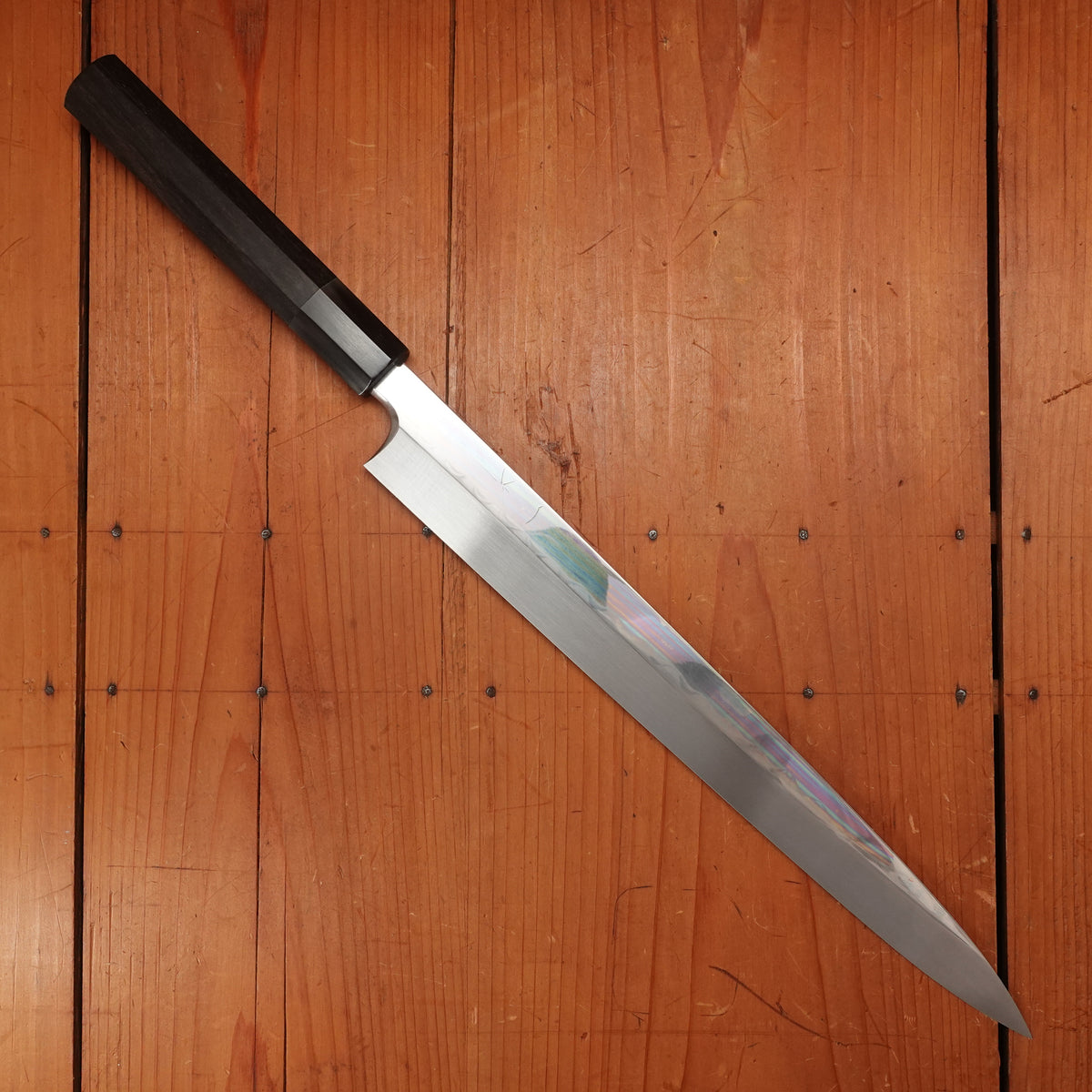
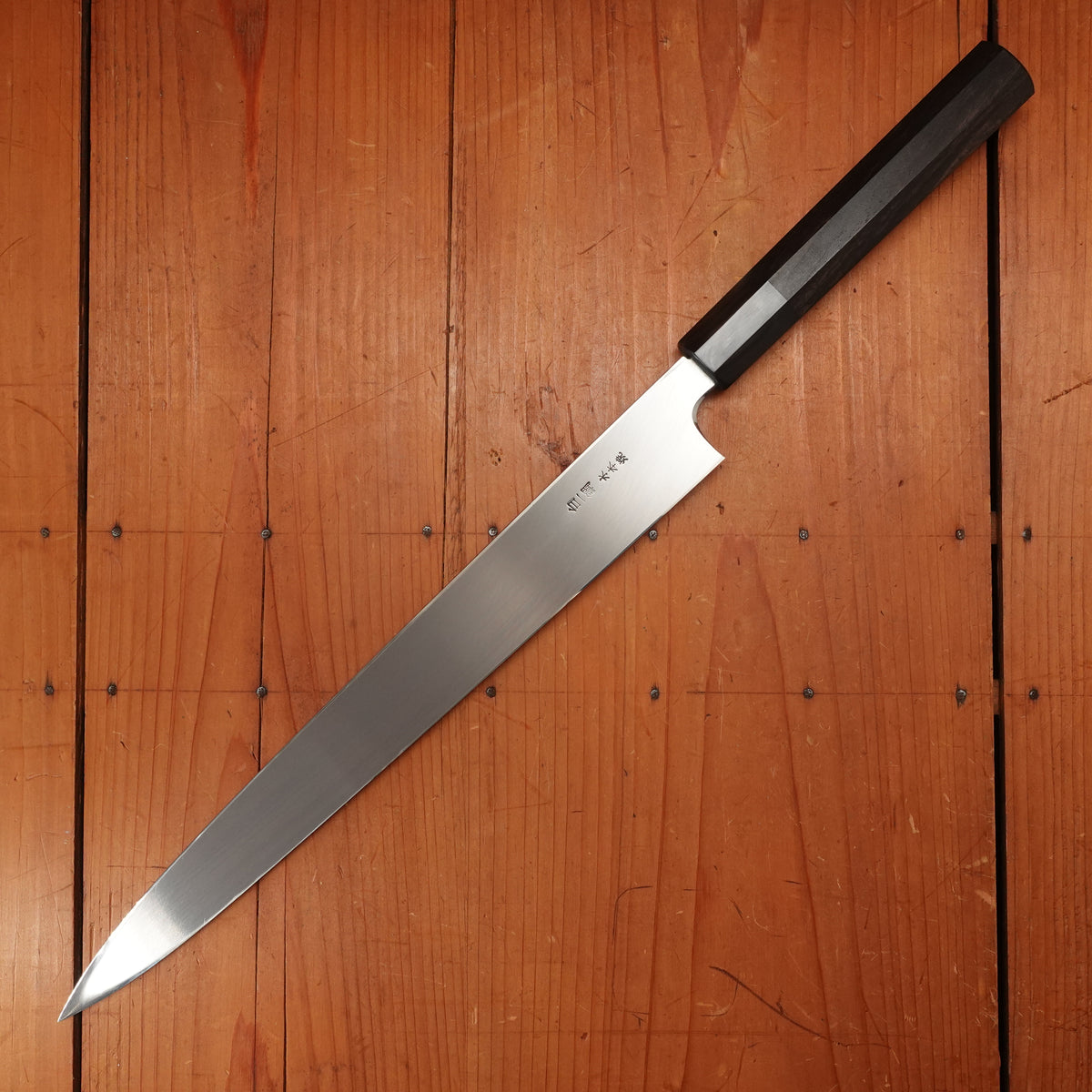
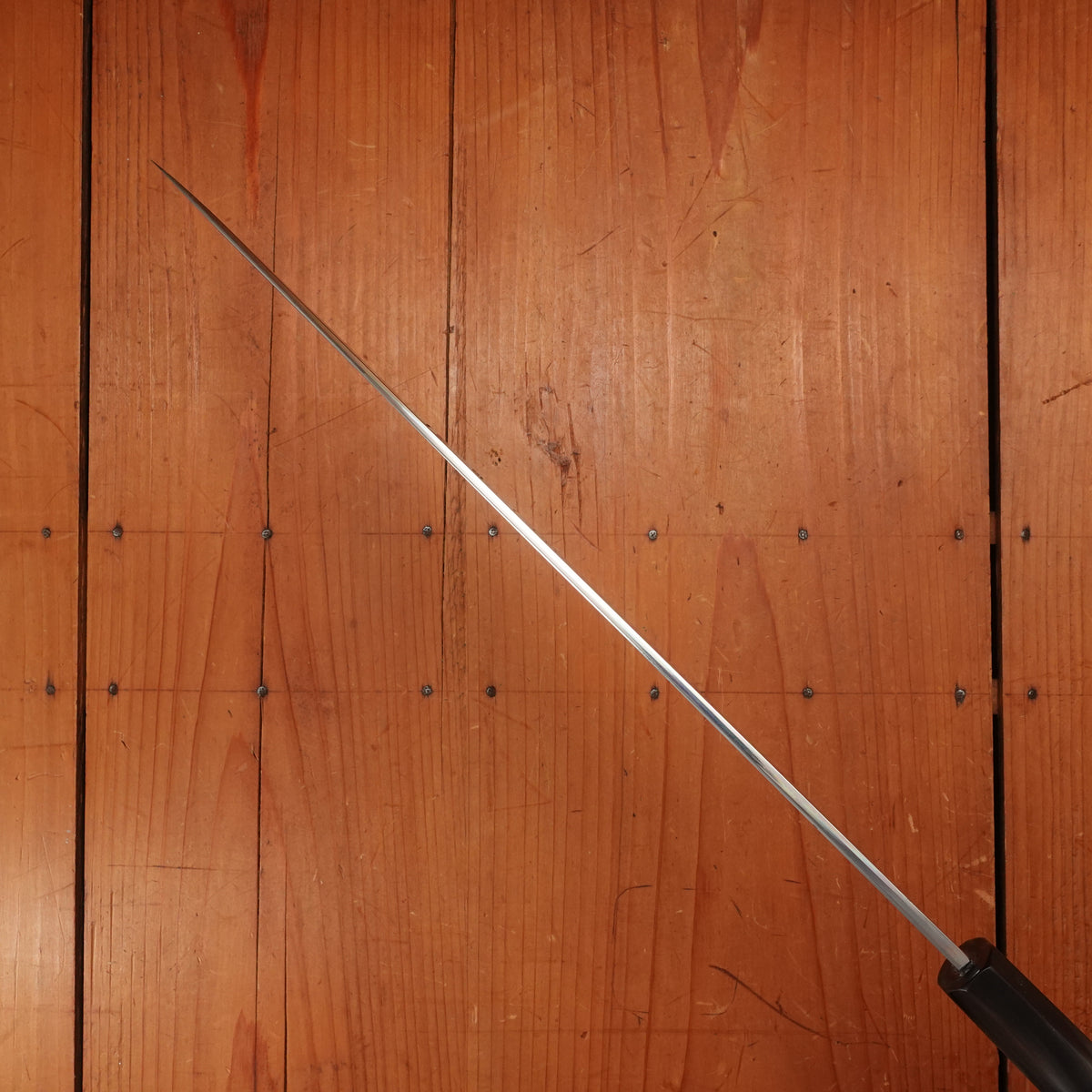
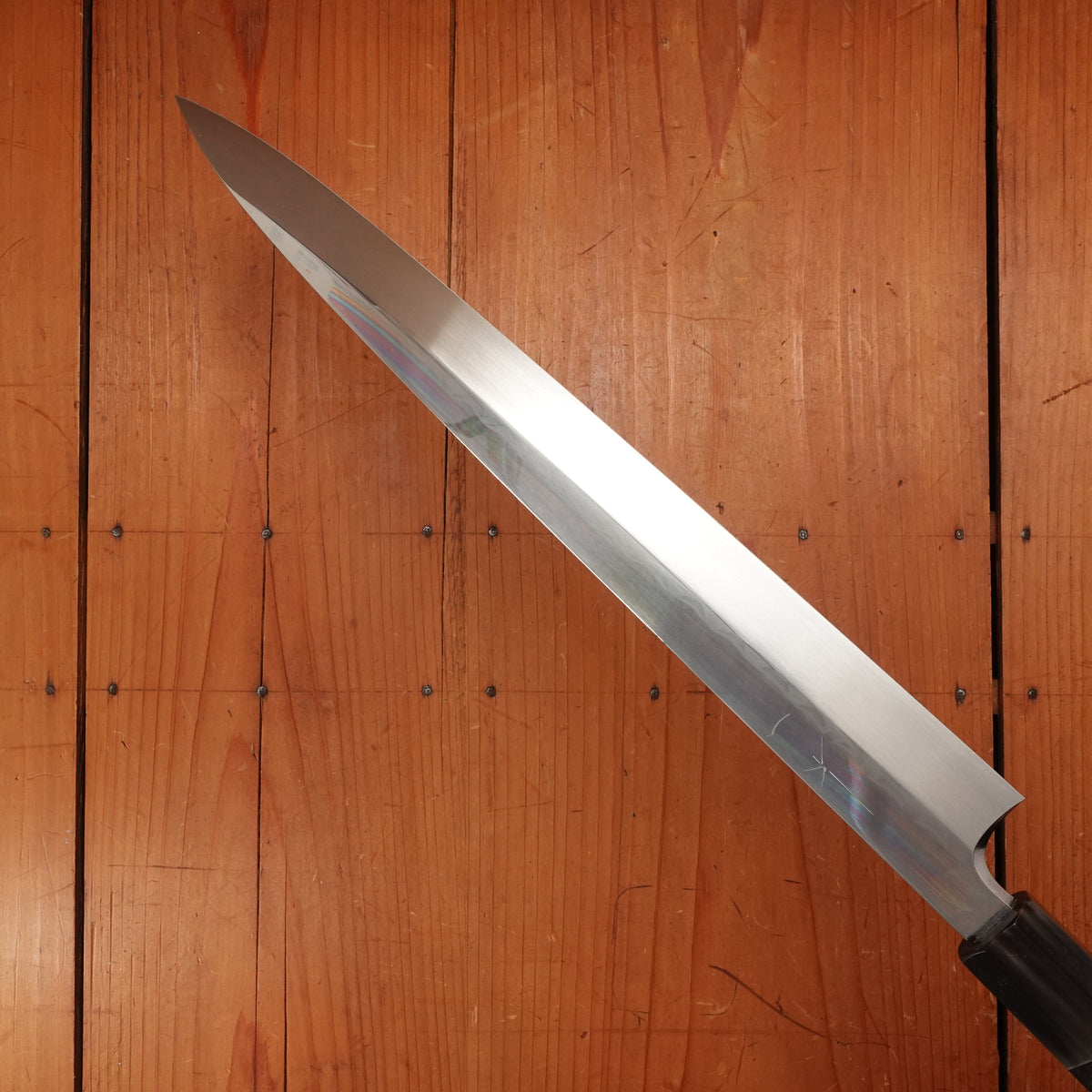
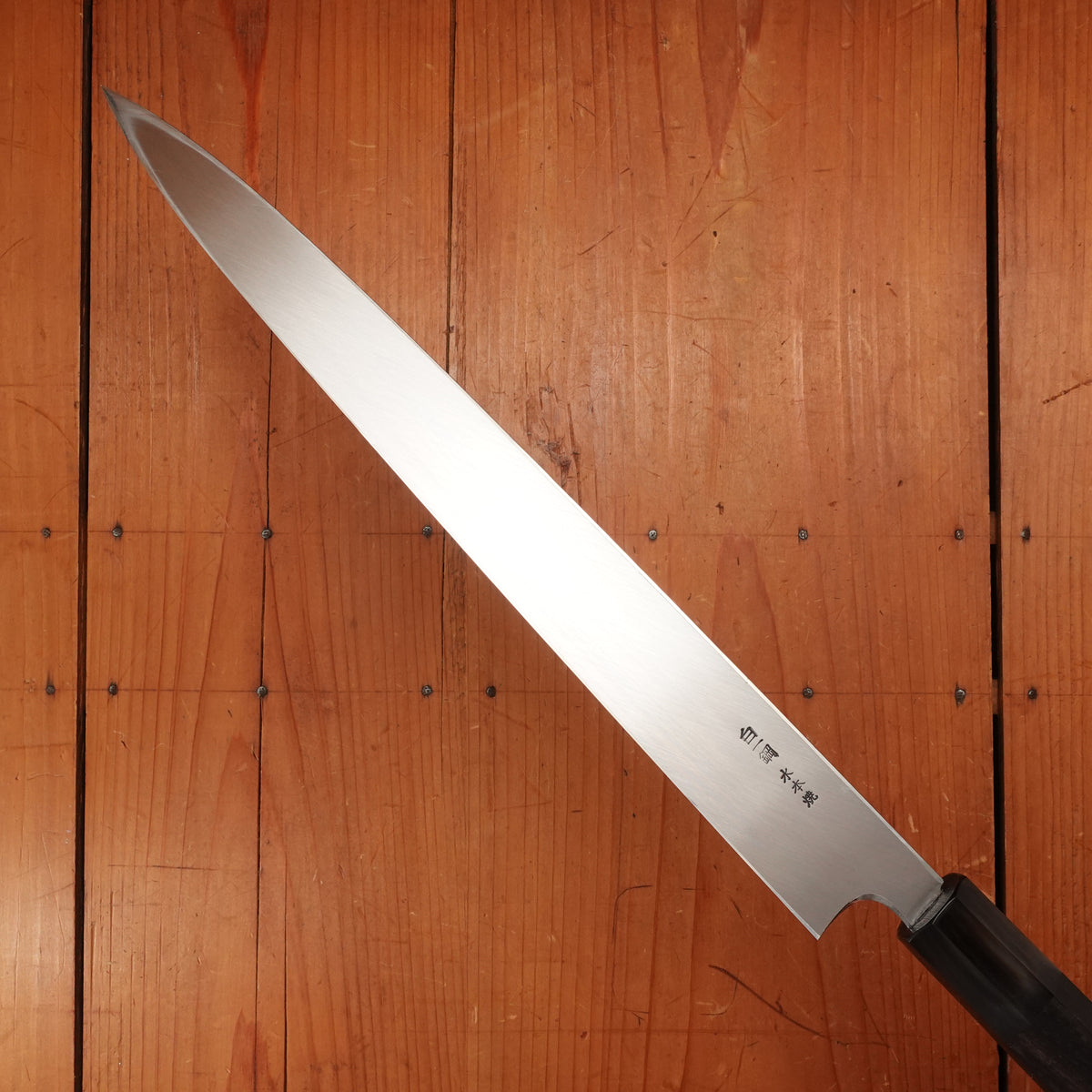
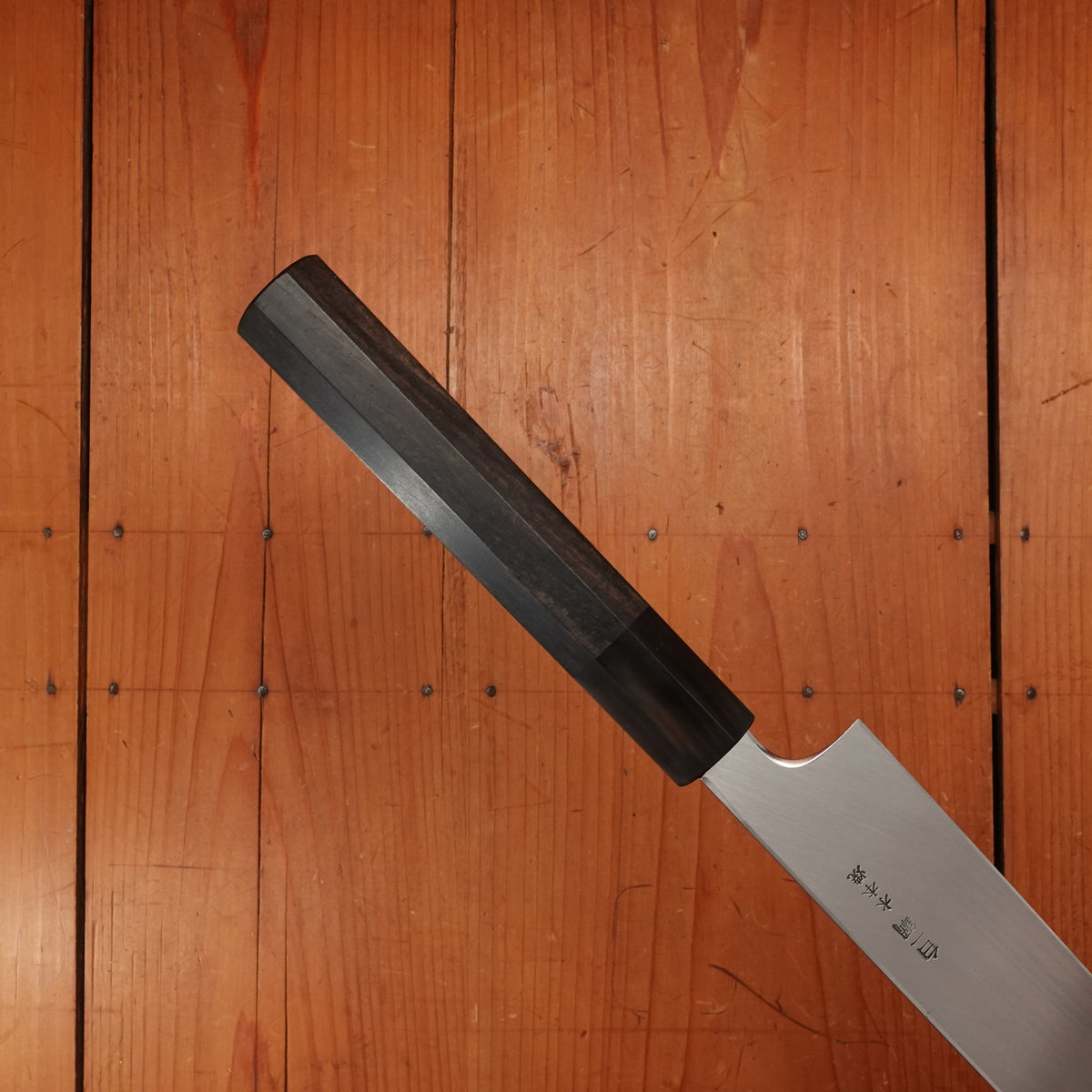
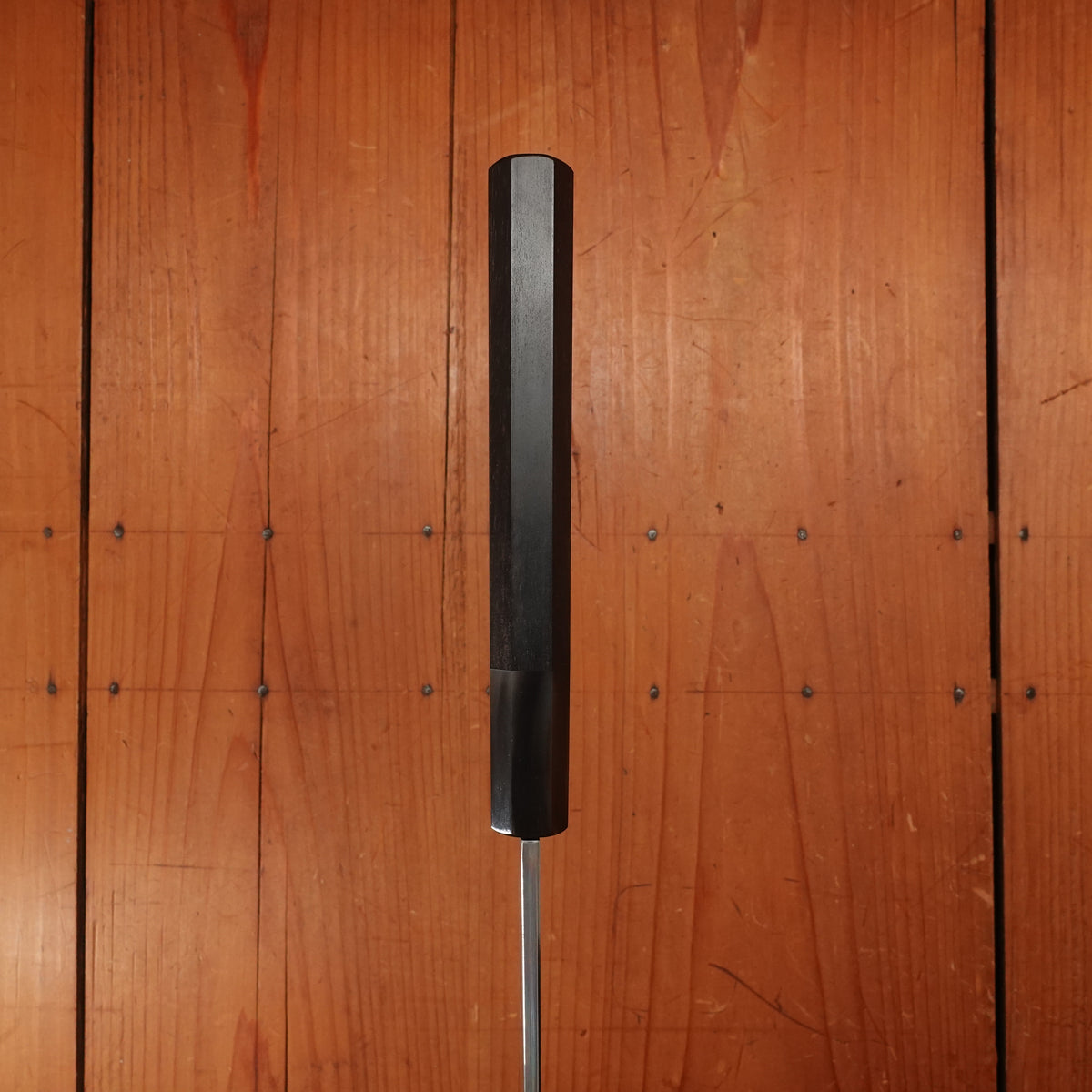
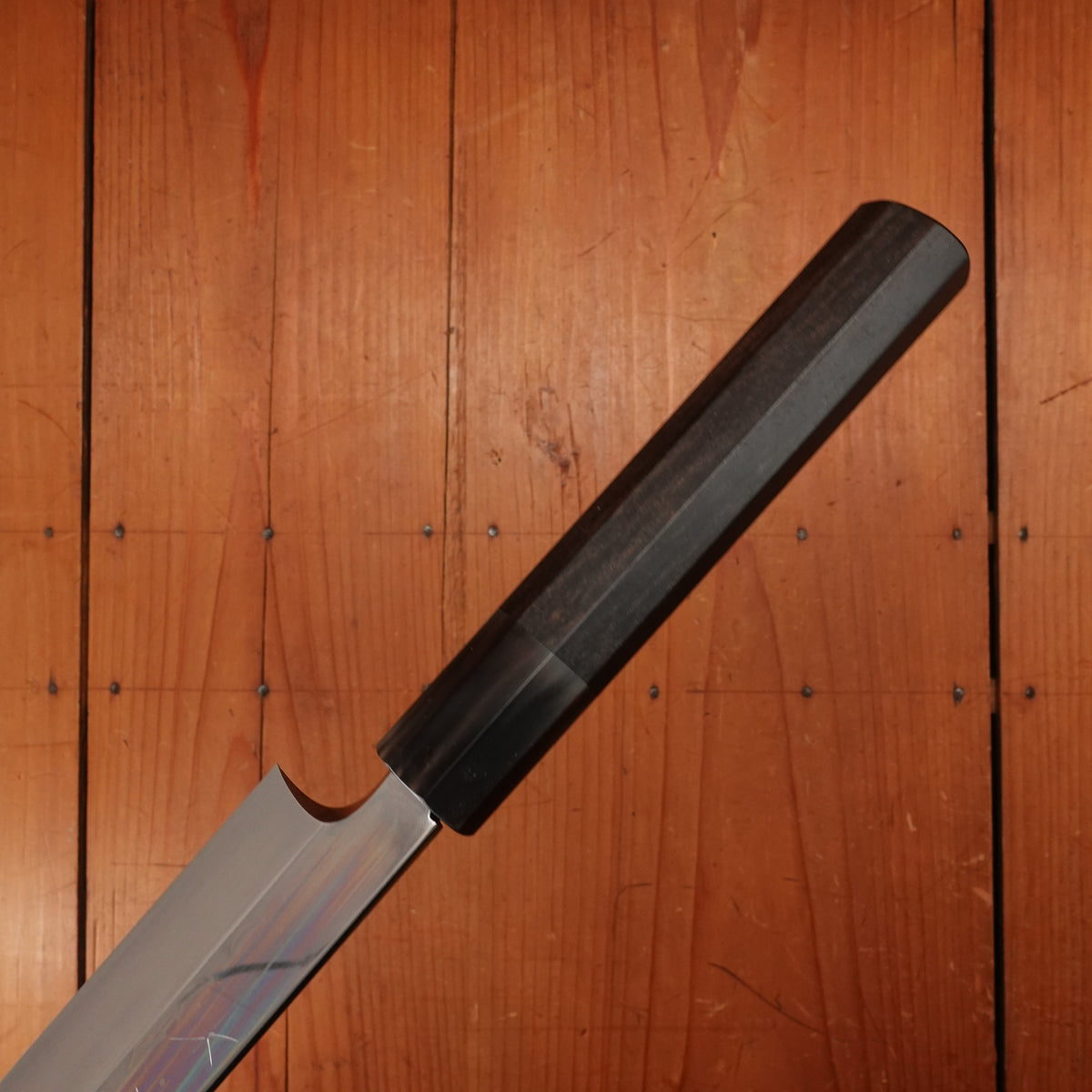
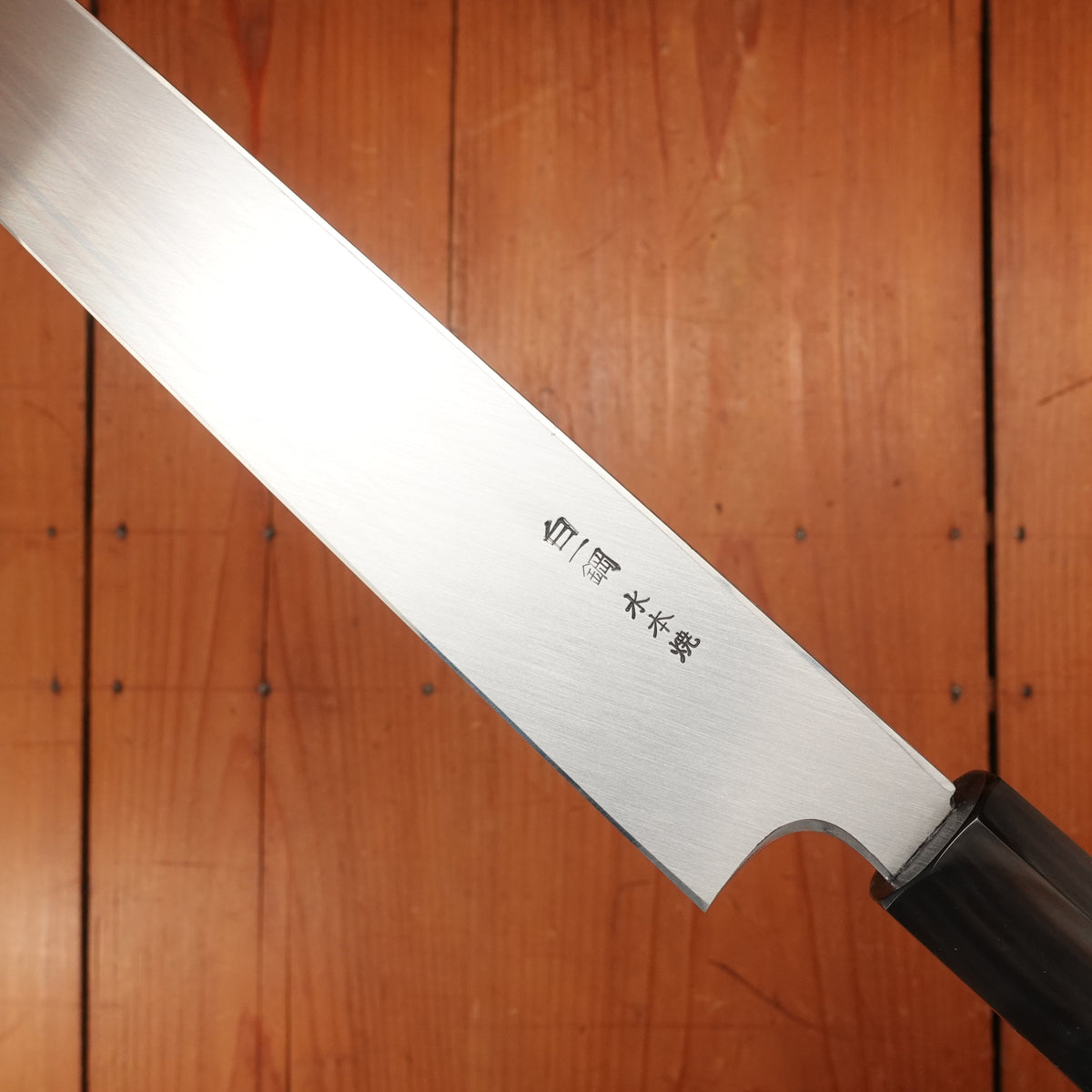
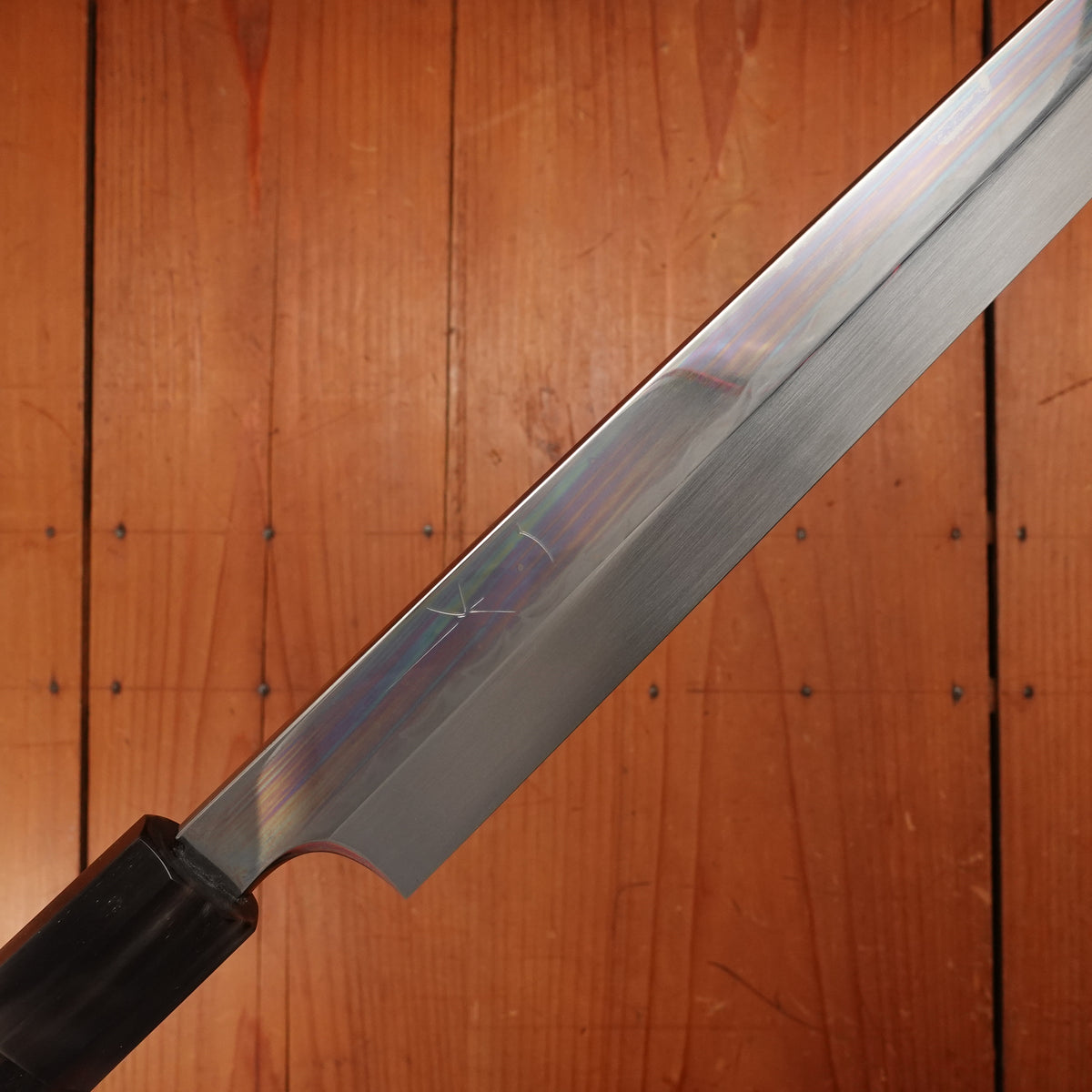
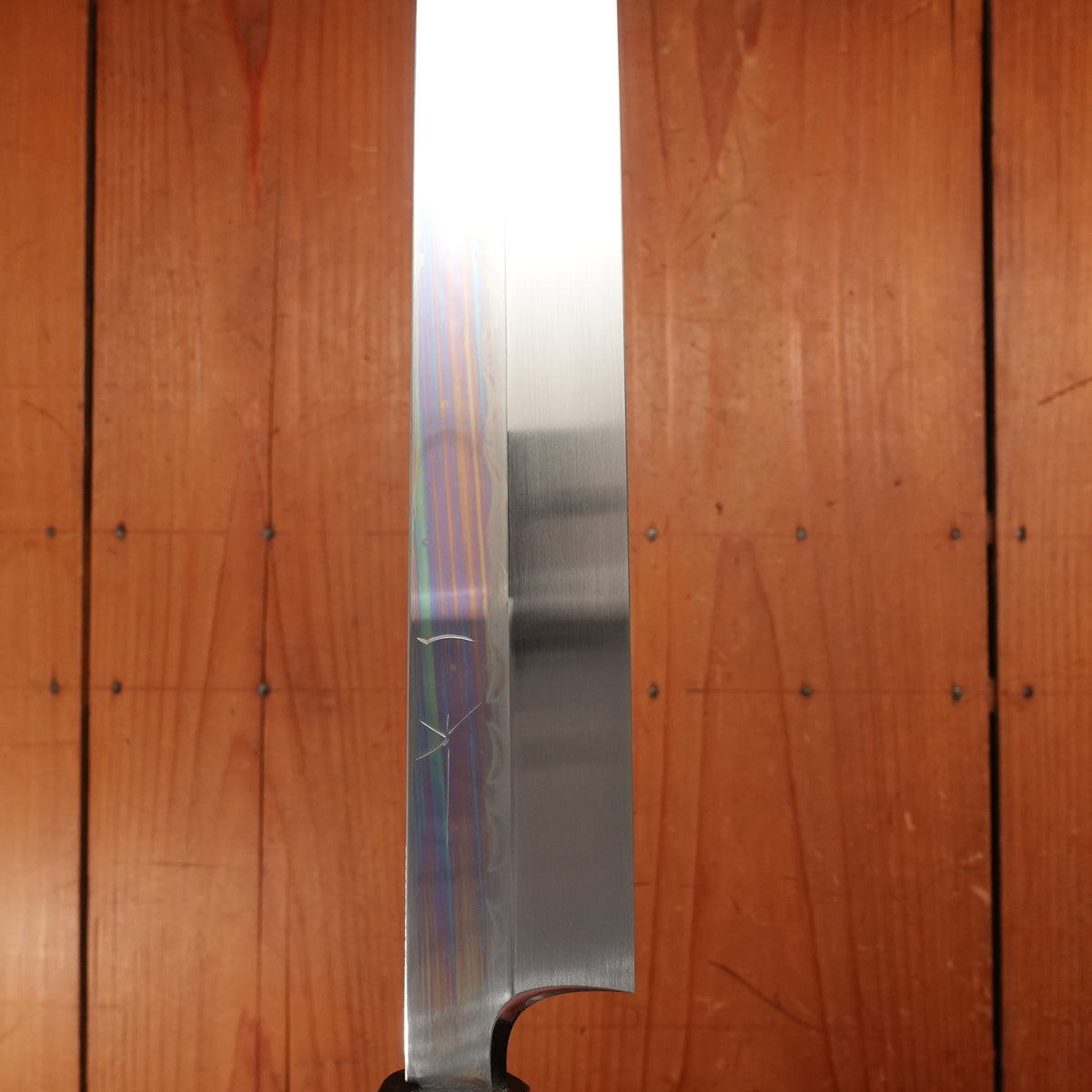
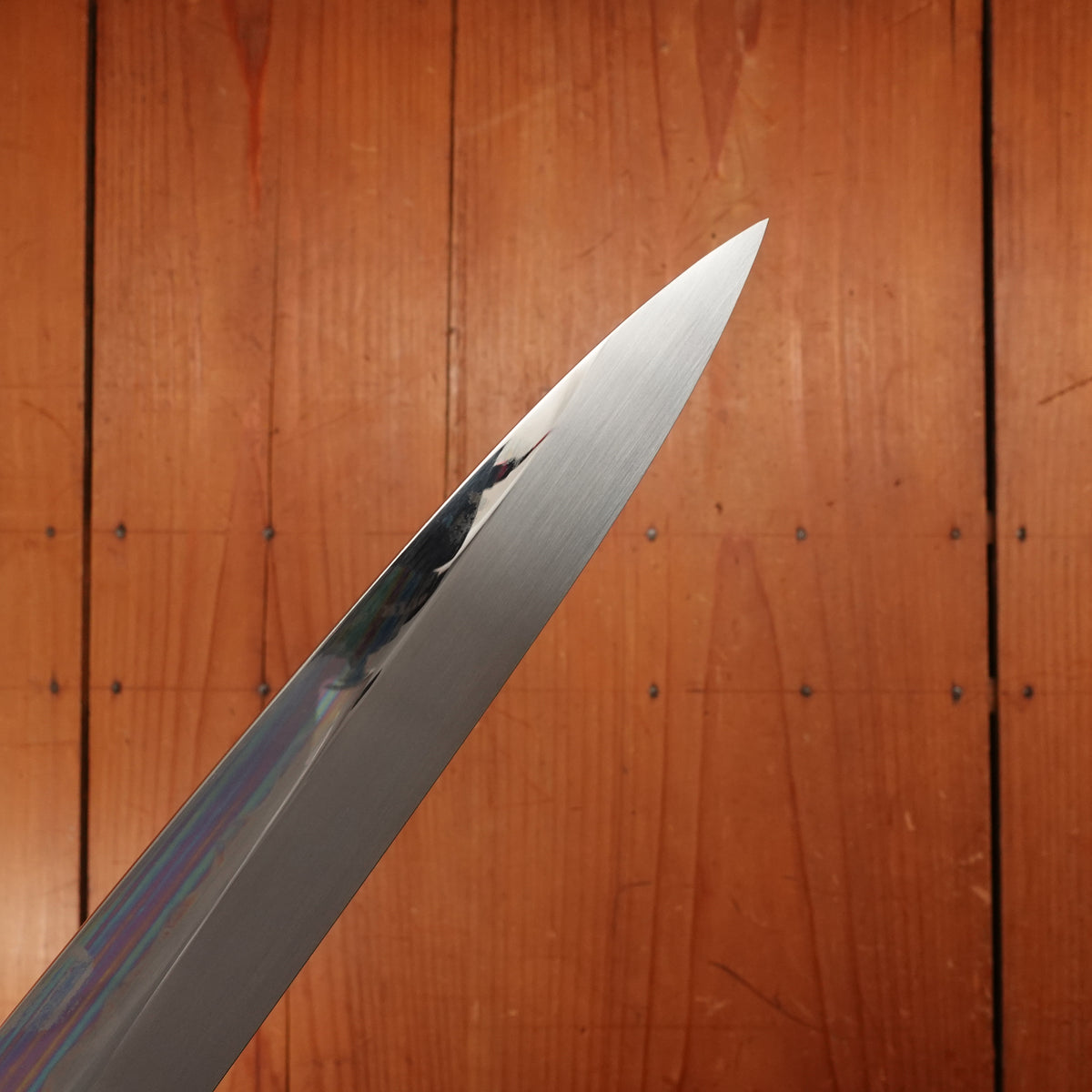
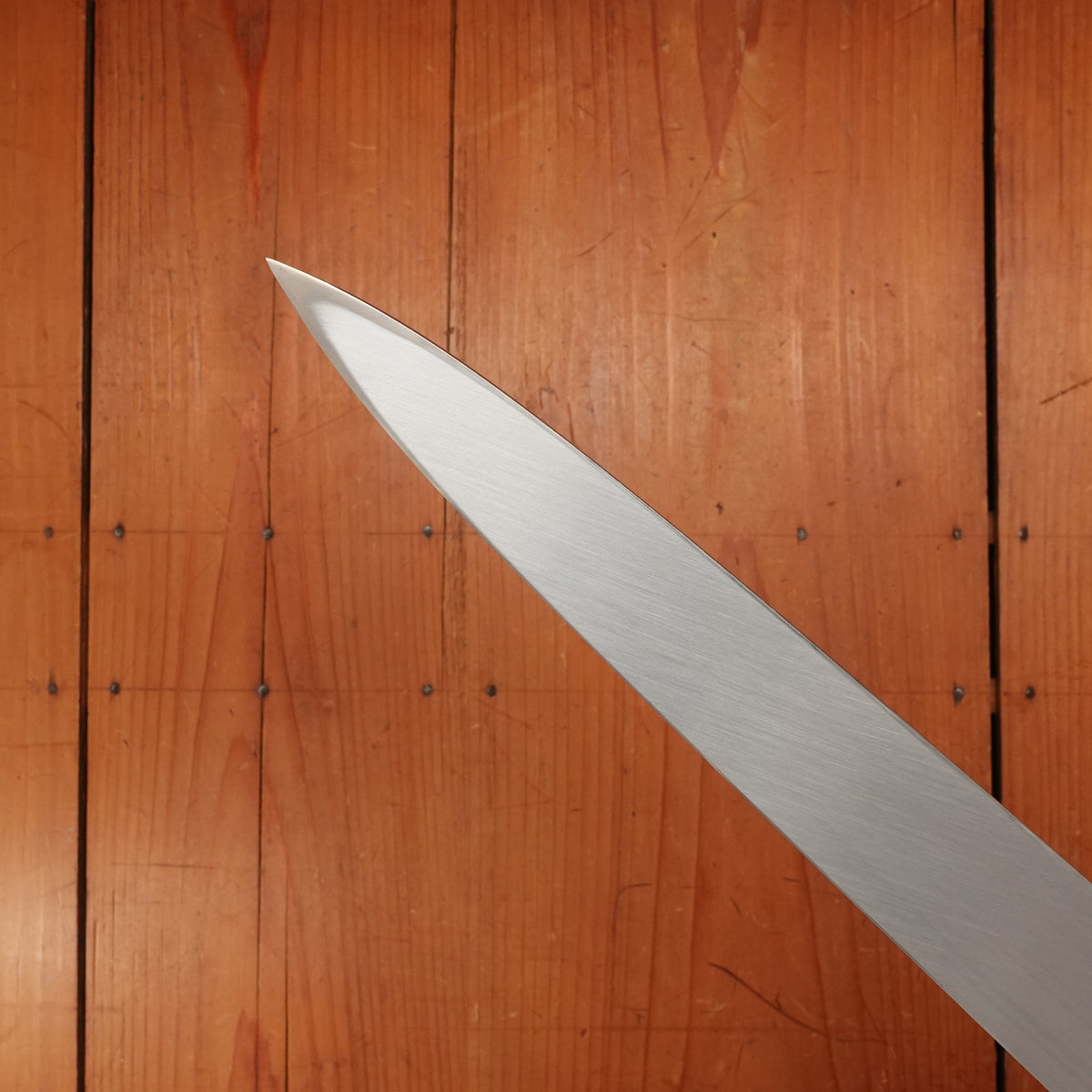
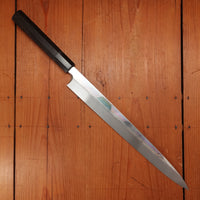
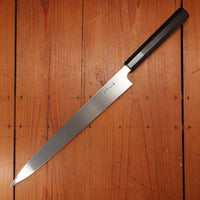
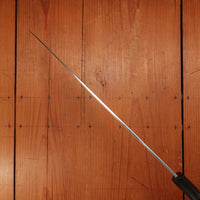
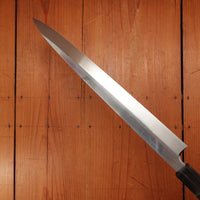
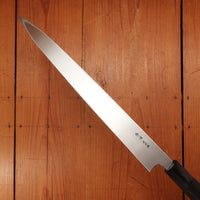
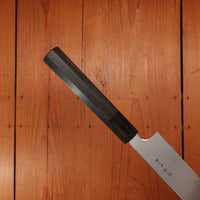
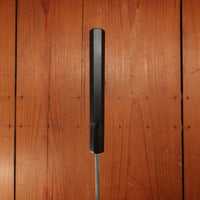
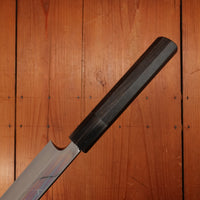
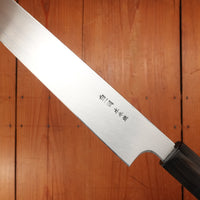
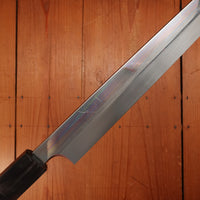
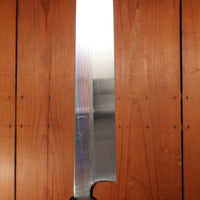
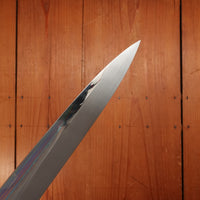
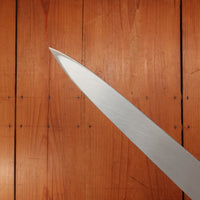
Hand made in Sakai, mizu honyaki (water quenched) shirogami #1 forged by dentoukougeishi master smith Kenji Togashi and expertly ground by his son Kenya.
We are super happy to recieve one of Togashi-san's water quenched shirogami 1 knives, Togashi's shirogami 1 forging is very well regarded and to find it in the very difficult to master water quenched honyaki is a find. Shirogami 1 is naturally more brittle than slightly lower carbon content shirogami 2 but rewards the user with longer edge life and the ability to work at even finer finishes.
Not for the first time user of a yanagi, this knife will demand greater skill in sharpening and use to preserve the proper geometry and to avoid damage.
Brand: Hitohira ひとひら (一片)
Smith: Togashi Blacksmith 富樫打刃物製作所
Producing Area: Sakai-Osaka/ Japan
Profile: Yanagiba
Size: 330mm
Steel Type: Carbon Steel
Steel: Honyaki Yasuki White (Shirogami) #1
Handle: Taihei Ebony & Buffalo Horn Ferrule Octagonal
Come with Saya
Total Length: 489mm
Edge Length: 321mm
Handle to Tip Length: 337mm
Blade Height: 38mm
Thickness: 4.3mm
Handle Length: 152mm
Weight: 291g
Hand Orientation: Right-Handed
Sharpener: Kenya Togashi
This is a carbon steel knife. Carbon steel is expected to develop a dark patina with use. It needs to be hand washed and towel dried soon after use. Do not air dry. Do not put it in the dishwasher. Long exposure to moisture and debris will result in rust. Any rust development should be removed with a light abrasive.
Twisting, scraping and heavy use as well as use on hard and very dense objects can lead to edge damage. Use on a quality wooden cutting board will help the knife stay sharper for longer. Use on hard surfaces like plates and bamboo will reduce the edge life and can result in edge damage. Special attention needs to be taken to prevent edge damage. Scraping, twisting and forceful as well as using on hard or very dense foods can result in chipping.
We recommend hand sharpening on whetstones. We have found that most Japanese knives perform best at a finer finish starting around 4000. Avoid pull through sharpeners and non-water cooled mechanized sharpening. Ceramic honing rods are preferred.
Pickup available at Bernal Cutlery
Usually ready in 24 hours
We are a full-service cutlery shop offering sharpening services, Japanese and Western culinary knives, vintage knives, outdoor, pocket and craft knives, cooking tools and accessories. We also offer knife skills and sharpening classes, and more.
We are proud to serve kitchen professionals, knife enthusiasts and home cooks alike. Located in the Mission District of San Francisco, California.